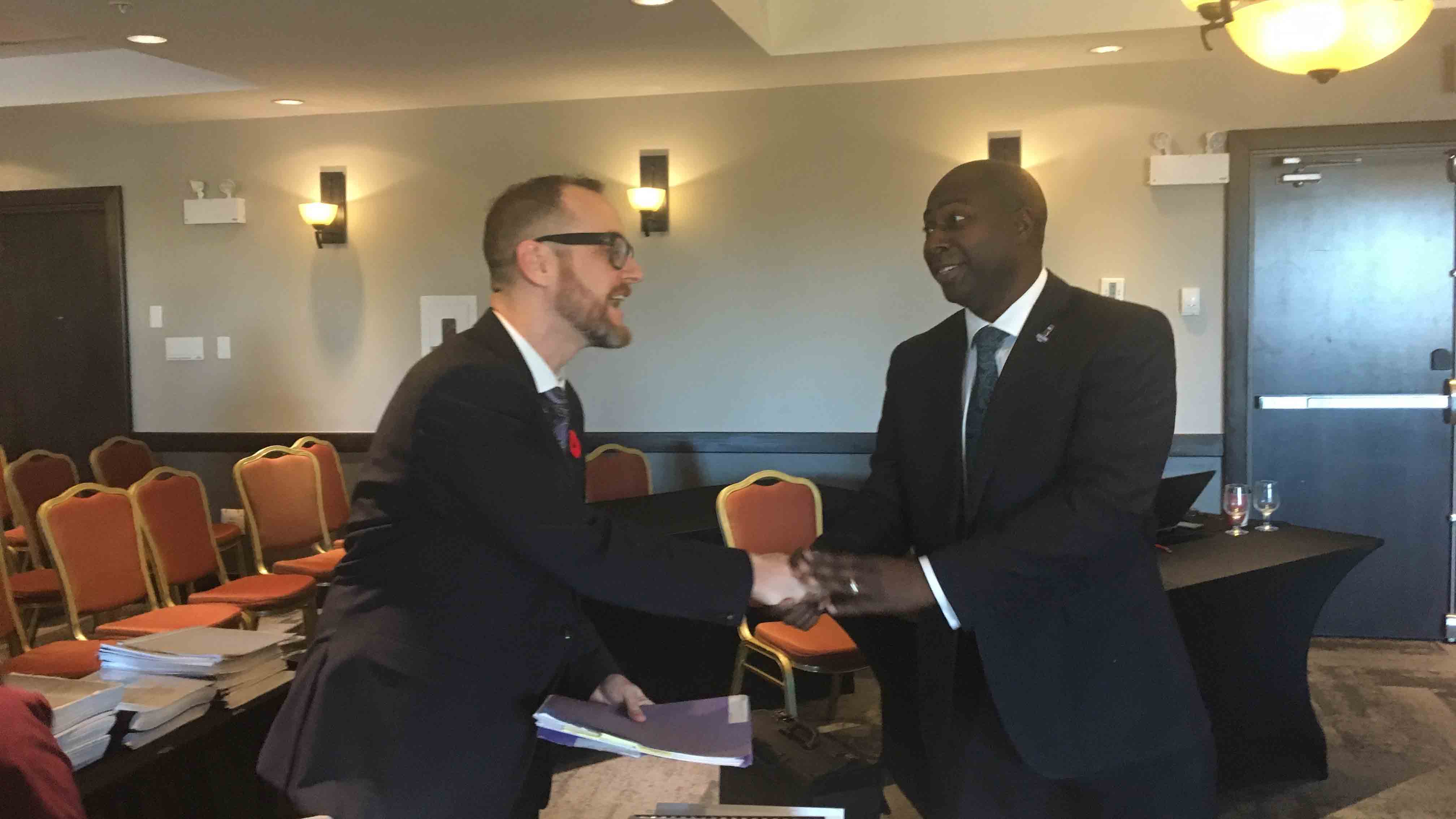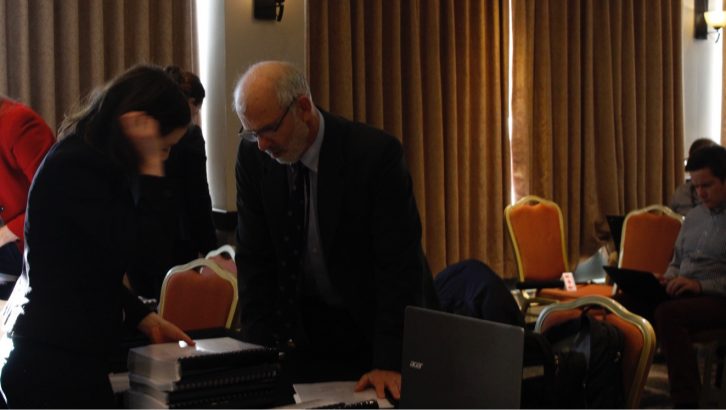Human Rights
Hearing into the rights of housing for people with disabilities ends
Complainants contend they should be living in community housing, not hospitals

caption
Lawyer Kevin Kindred (left) shakes hands with Kendrick Douglas, legal counsel for the Commission.Final arguments have been made at a human rights tribunal hearing where the Province of Nova Scotia is accused of discriminating against people with disabilities.
The complainants, Beth MacLean, Sheila Livingstone and Joseph Delaney, were living in hospitals when they submitted a human rights complaint in 2014. They are alleging it is discriminatory for them to be housed in hospitals instead of small option homes.
It is a significant case, said one of the complainants’ lawyers, Vince Calderhead.
“What is crucial, in my perspective about the whole process is that people with disabilities, who have fundamental human rights, were finally in a position to advance them and to have them heard,” he said in an interview Wednesday. Related stories
“Even to get that far, to get to first base so to speak, is almost unheard of.”
Small option homes are smaller housing units where daily support is given to residents with disabilities after they are medically discharged. Usually, three to four residents live in each unit.
The hearing started on Feb. 5 and ended Wednesday, with closing arguments. Wednesday’s hearing took place at the Best Western Chocolate Lake Hotel in Halifax.
Kevin Kindred, one of the province’s lawyers, argued the housing issue isn’t discrimination, but a supply and demand problem. There aren’t enough spots for the number of people wanting them.
“The government can give supporting housing programs for persons with disabilities, but it is not discriminatory that those programs don’t meet the needs of every single eligible person,” said Kindred during the hearing.

caption
Lawyer Vince Calderhead during a break in proceedings in February.Vince Calderhead, who is one of the lawyer’s for the complainants, said this case is about a service that exists that isn’t fully implemented. He used another case from 1989 to support his point, where a British citizen wanted to be a lawyer in British Columbia, but was denied because he wasn’t Canadian.
Despite the different circumstances, he said the accommodation of people’s needs is true equality, and that’s what this disability case is about.
Kindred said if a government service is provided to citizens, it doesn’t have to say when people who need the service will receive it.
Calderhead didn’t agree.
“It is very cold comfort for a person with disabilities who is eligible for this program,” he said.
During the hearing, Kindred said that people with disabilities are the most vulnerable people the province serves. He also said the government expects to be held accountable for their small option homes service but it should be held accountable by MLAs and not this hearing.
The lawyers for the province declined to comment when the hearing ended.
Calderhead said issues brought up at the hearing have no legal precedent in Canada. This means alleged discrimination by a government, in preventing people with disabilities to access community housing, has never been legally challenged.
“The people who are at the subject of our complaint are very disadvantaged in our society, have virtually no voice,” said Calderhead. “For a human rights body like this one to have spent over 30 days hearing their complaint is incredibly significant.”
J. Walter Thompson, tribunal chair, will reflect on the arguments and make a decision at a later date.

